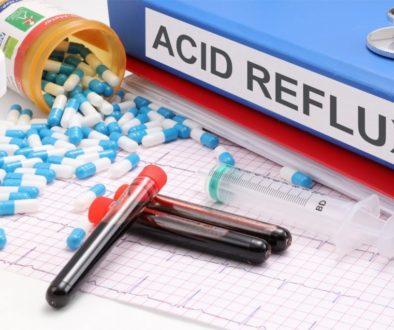Helping Those Too Little to Help Themselves: Recognizing the Symptoms of Acid Reflux in Babies
[widget id=”ad_unit-350545258″]Ad Widget: Generic – 468×60 Banner[/widget]
One major frustration for most parents is their inability to know what is going on with their very young children. What is bothering infants, who can only communicate through crying, is often a mystery. One way for parents to feel better about their ability to comfort their infants is to learn about issues that commonly afflict infants and toddlers.
Normal or Not? Symptoms of Acid Reflux in Babies
Infants who suffer from acid reflux are not capable of keeping stomach contents inside their stomachs. Unlike adult cases of acid reflux disease, this does not appear to be muscular issue in all babies. Rather, babies’ young (and sometimes underdeveloped) digestive systems are often poorly coordinated, leading to the stomach becoming too full, too quickly. Additionally, infants spend far more time on their backs than most adults, which aggravates the symptoms of acid reflux in babies.
Acid reflux is, unfortunately, a fairly common issue for infants – some sources say nearly half of all infants will suffer from acid reflux within the first few months of life. Quickly recognizing the symptoms of acid reflux can prevent frustration and pain (for both infants and their parents), as well as the long-term negative consequences of the disease, including failure to thrive due to inadequate food consumption and breathing problems caused by esophageal tissue damage.
Common symptoms of acid reflux in babies are actually fairly similar to things experienced by many babies. As any experienced parent knows, spitting up, vomiting and irritability (3 symptoms of acid reflux in babies) occur with most infants on a regular basis. How can parents know if this is normal behavior or a signal of a problem?
The answer depends mostly on the frequency and severity of the symptoms. If a child vomits nearly every time her or she eats, there is likely a problem. If the vomiting is associated with breathing difficulties or frequent respiratory infections, there may be a problem. Any parents who suspect the symptoms of acid reflux in their baby should seek medical treatment from their pediatrician.
Treating the symptoms of acid reflux in babies can range from simple things (like thickening food with cereal) to more intense treatments, like over the counter and prescription medications, and special beds that allow infants to sleep on an incline, which helps reduce the symptoms of acid reflux in babies. Regardless of the causes and treatments for acid reflux, the good news is the vast majority of infants do not suffer any long term consequences of the disease.

